Commerce + Communities Today contributing editor Ben Johnson traveled to Dubai recently and witnessed firsthand Dubai’s purposeful development efforts. At the heart of it all is Dubai Mall, one of the world’s largest and traffic to match. Read on for Johnson’s observations and photos.
Almost exactly 27 years ago, I had occasion to visit Hong Kong, then and now one of the wealthiest cities in the world. Billions of dollars was going into new infrastructure, and more than 32 million square feet of retail, residential, office and hotel around mass transit stations created mini cities. It was only months before the turnover of the crown colony to China after 156 years of British rule. Back then, I wrote: “The scope of engineering marvels taking place is beyond traditional American comprehension.” The new Chek Lap Kok Airport, for example, was taking shape on its own manmade island. Designed by Norman Foster, it would transform transportation in the region when it opened in 1998.
Back in 1997, there seemed little chance that such a level of development activity and transformation would occur again within decades, if ever. Little did I know that a man named Mohamed Ali Alabbar would found a company called Emaar on June 16 of that year in Dubai. In the short period since, the emirate of Dubai has developed not only one of the world’s largest malls but also the world’s tallest building, the Burj Khalifa. Only two decades ago, Dubai was largely dominated by open desert, but ambitious plans were afoot. It has become an ambassador of world records as the United Arab Emirates has sought to catch up within the global economy.
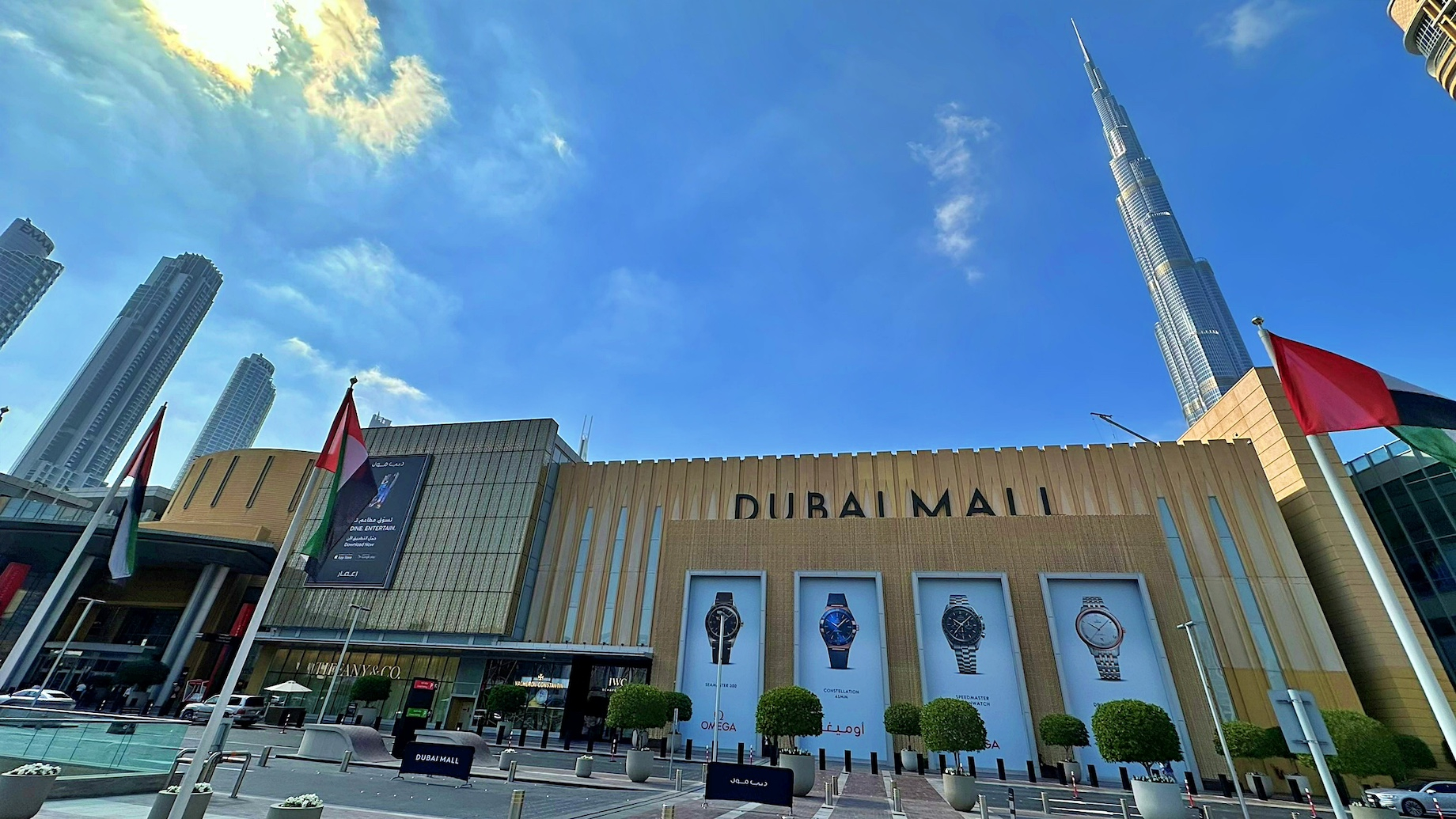
The world’s tallest building, the Burj Khalifa, looks over one of the world’s largest malls, Dubai Mall.
Nestled within Dubai’s gleaming downtown skyscrapers sits Dubai Mall, the most visited retail and lifestyle destination in the world. It welcomes more than 100 million visitors annually. Developed by Emaar Properties and opened in November 2008, it features more than 1,200 retail outlets, including department stores Galeries Lafayette and Bloomingdale’s, along with over 200 international dining establishments and a range of entertainment and leisure attractions.
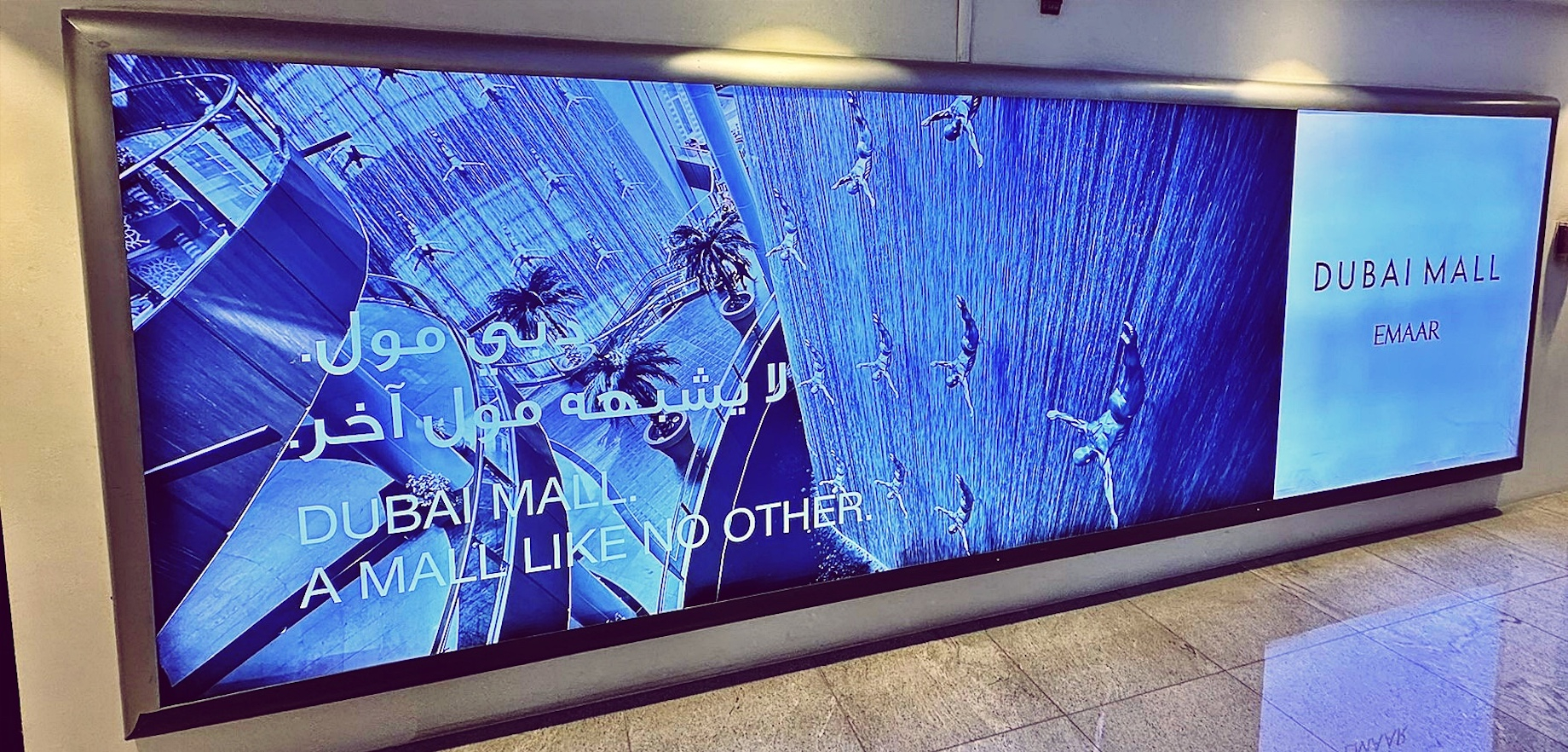
Dubai Mall’s tagline, A Mall Like No Other, is true enough, for it is much more akin to a bustling metropolis than to a shopping destination. In fact, Dubai Mall accounts for about half of the city’s consumption of luxury goods.
One section of the mall, Fashion Avenue, features more than 150 luxury shopping and dining experiences, and an adjoining arabesque-styled Souk Al Bahar marketplace offers residents and tourists more than 100 shops and 22 restaurants, cafes and lounges with views of the massive, choreographed Dubai Fountain and of the skyscraping Burj Khalifa.
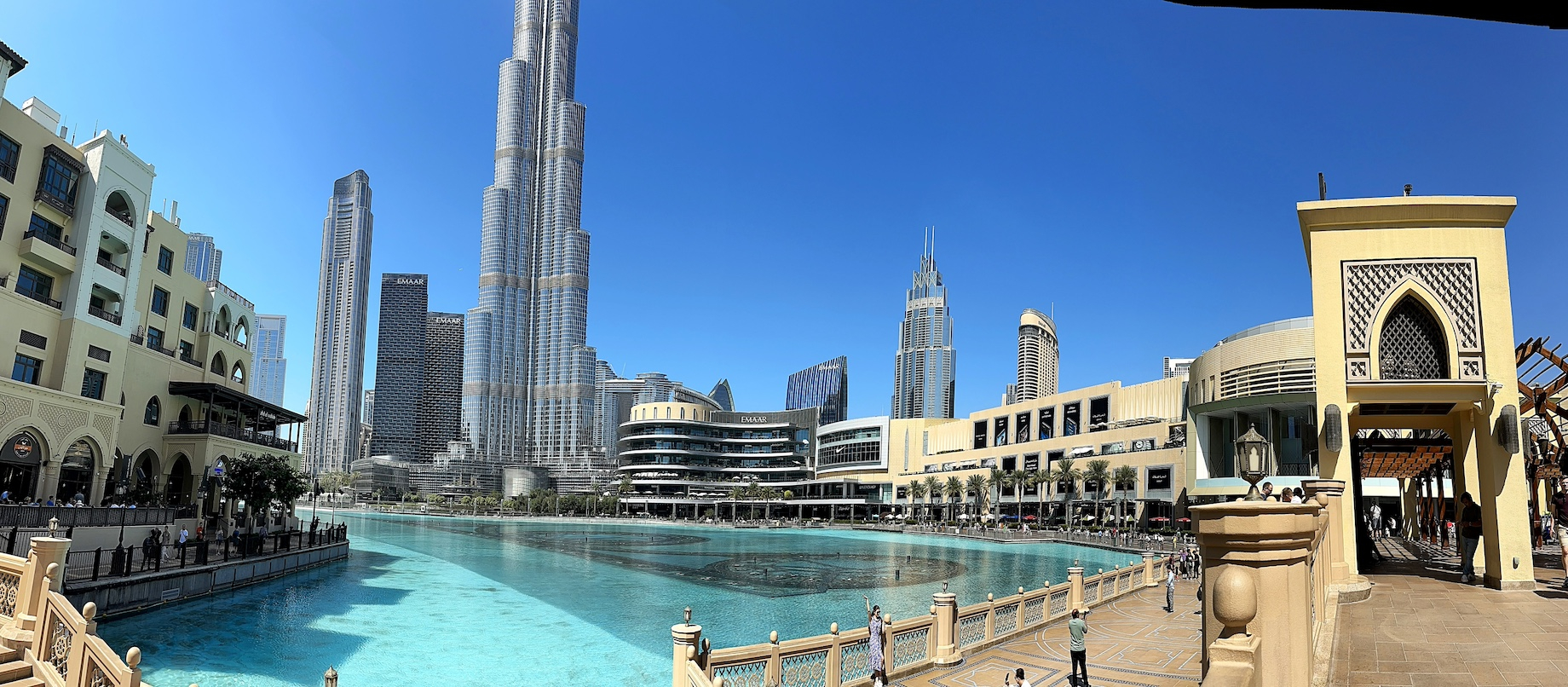
Dubai Mall’s Souk Al Bahar marketplaces offers views of Dubai Fountain and Burj Khalifa.
Emaar Properties, one of the world’s largest real estate companies, is the master developer of Downtown Dubai, its flagship megadevelopment occupying two square kilometers flanked by Sheikh Zayed Road and Financial Centre Road. This hub, including the mall, is at the heart of Dubai’s reputation as a global icon.
Emaar has a land bank of 1.7 billion square feet in the UAE and international markets and has delivered over 94,000 residential units since 2002. Its revenue-generating assets include more than 1.3 million square meters, along with 37 hotels and resorts with 8,134 rooms.
One of the unique aspects of the company’s development process is its intention to create entire integrated communities and marketplaces rather than one-off projects. This is not happenstance formed by throwing the riches gleaned from energy exports into the ground. Dubai Mall serves as a major focal point.
Sheikh Mohammed bin Rashid al Maktoum, vice president and prime minister of the United Arab Emirates and ruler of Dubai, spells out how he believes development is helping Dubai in his book, My Vision: Challenges in the Race for Excellence. “The UAE’s leadership understands that if our country lags behind others economically, it will be left behind,” he said. “It also knows that large-scale development will not only improve the country’s physical infrastructure but eliminate unemployment, ignorance, poverty and illness. Our mission is for Dubai to become an international, pioneering hub of excellence and creativity, and we are already striving to make it the world’s premier trade, tourism and services destination in the 21st century.”
The services aspect of this mission is evident in Dubai Mall’s diverse tenant mix. A 24-hour Mediclinic on the upper level was bustling with visitors and patients soon after the mall opened on a recent weekday. Shoppers also can find groceries in the ground-floor Waitrose and pharmaceutical needs at any of a half-dozen pharmacies. Restaurants, snack stands, fast-food restaurants and cafes also are scattered throughout the mall.
In the center of the mall sits the three-story-high Dubai Aquarium & Underwater Zoo, one of the world’s largest walk-in aquariums with a 10 million-liter main tank. The mall’s latest expansion, the popular Chinatown area, opened in September.
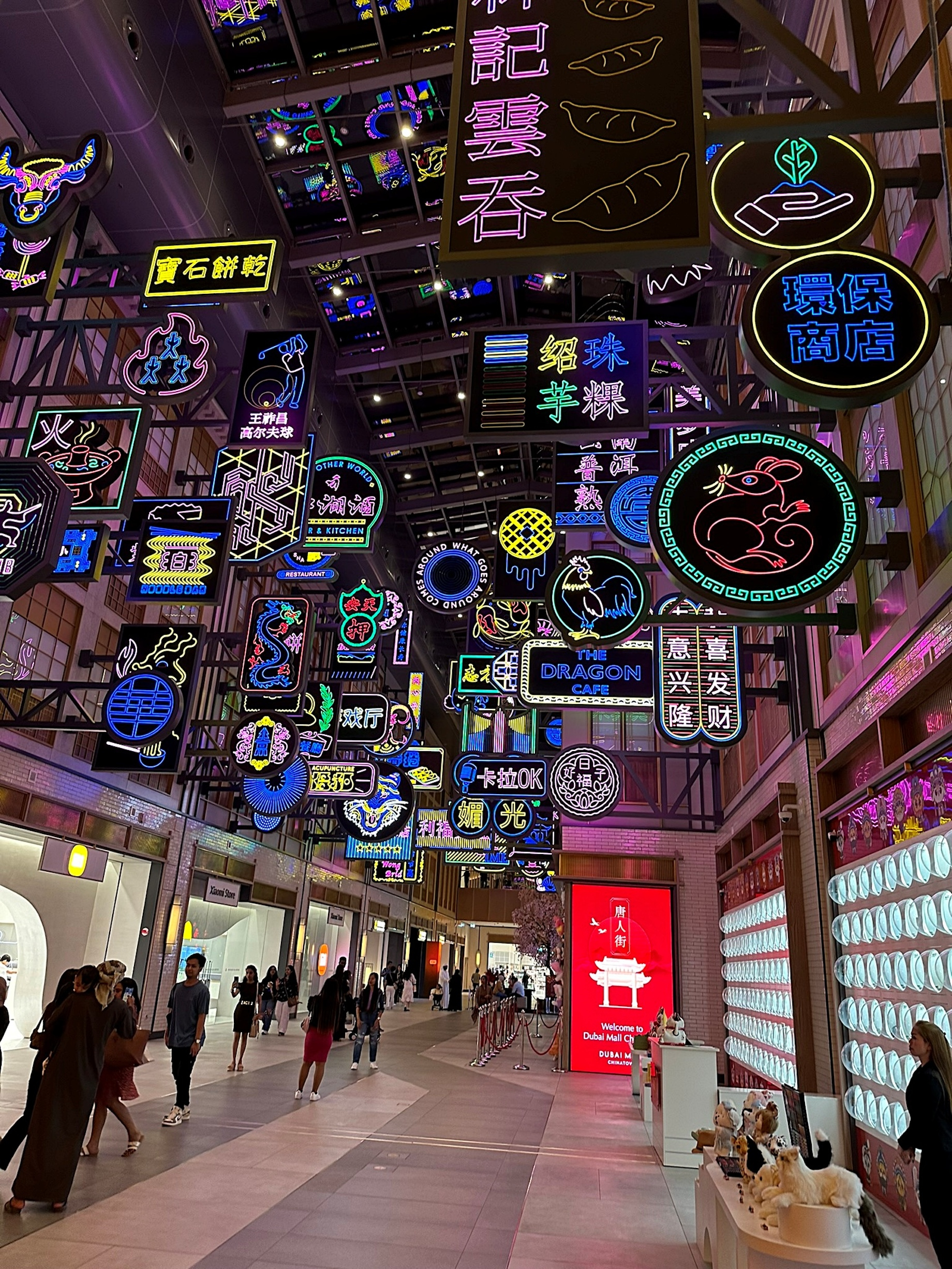
Covering 160,000 square feet, Dubai Mall’s Chinatown was designed by Shanghai-based firm Kokaistudios and is divided into four distinct areas, giving visitors a close look at various aspects of Chinese culture and catering to the large populations in nearby Asia.
Plans are underway to expand and refresh the mall, as well. “We are planning to renew Dubai Mall, expand it and change it,” Alabbar said in a recent Instagram post. “We must take care of this mall, as one takes care of their small child.” Details on the changes have not yet been released.
While the commerce part of the mall’s equation is apparent in every corner, so too is the connection between the mall and the local community. Foot traffic in the morning is light until around noon, when passengers start arriving in earnest via the connected Dubai Metro station. Open past midnight, the property is family friendly and facilitates socializing. A family of 10 spanning generations quite happily noshed on burgers and fries from a Hardee’s in one of the many food courts on a recent Sunday night.
Of course, Dubai has a reputation for the luxury lifestyle, and not surprisingly, luxury brands are in abundance at Dubai Mall, from the quality of the vehicles arriving in style off the adjacent freeways to the stores inside to the branded hotels and apartment residences surrounding it.
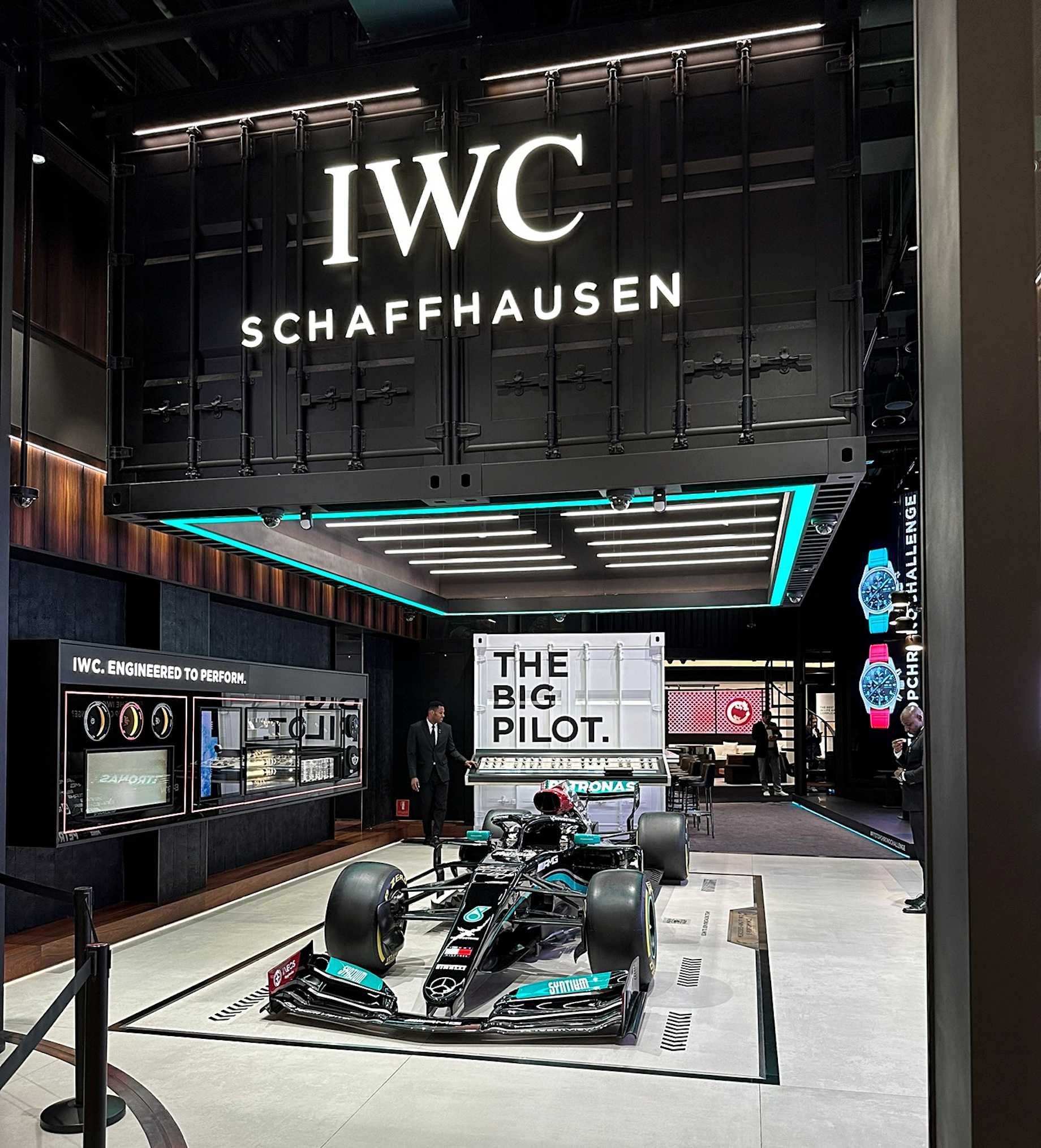
Among the luxury retailers in Dubai Mall is Swiss watchmaker IWC Schaffhausen.
However, the overarching vision of both the public and private sectors in the UAE is the same as any nation: to achieve sustainable growth and prosperity. “Dubai used to be a station along the East-West trade routes,” said Maktoum, “but it is now a gateway to the four corners of the world.”
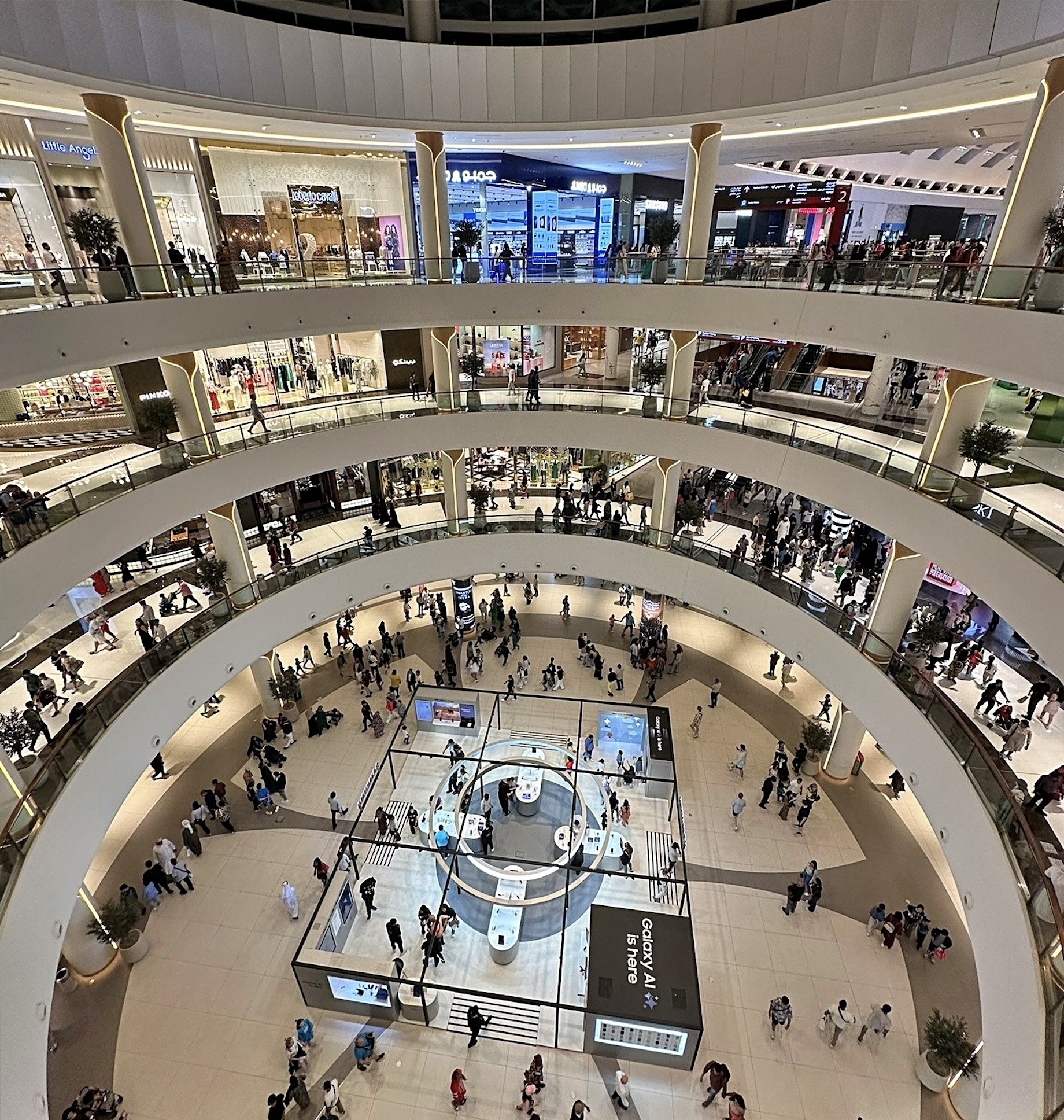
By Ben Johnson
Contributor, Commerce + Communities Today